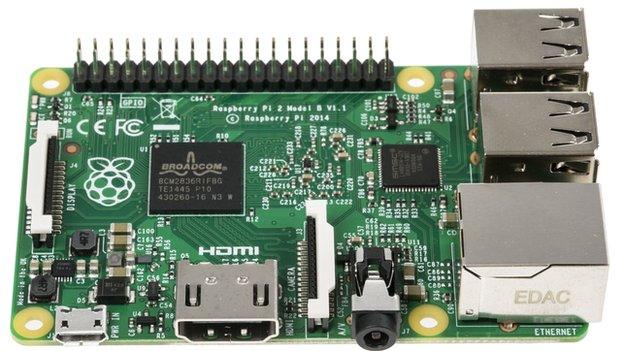Raspberry Pi passes 10m sales mark
- Published
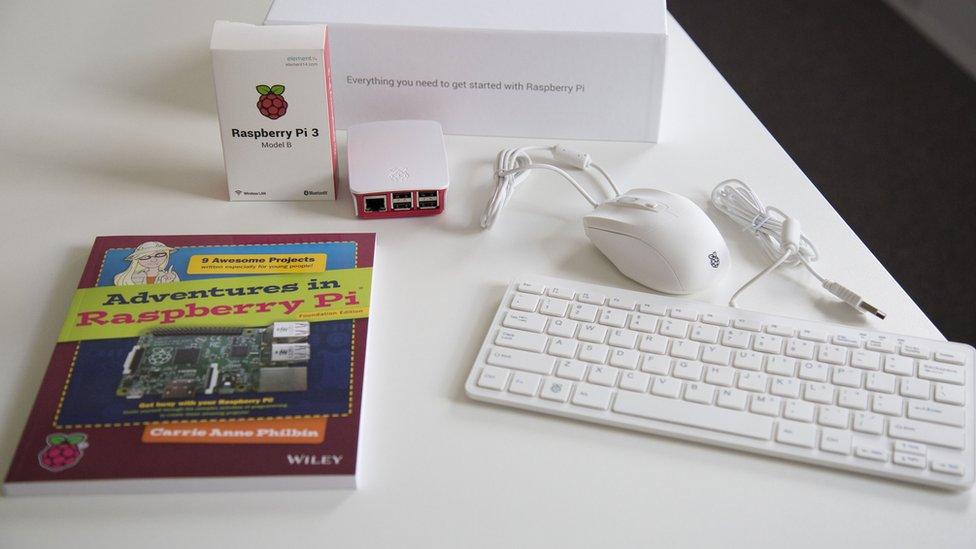
A new starter kit has been launched to celebrate the 10m sales mark
The Raspberry Pi has sold 10 million units - continuing its success as the most popular British computer ever.
The computer, about the same size as a credit card, was first released in 2012 and is widely used as an educational tool for programming.
However, it can also be used for many practical purposes such as streaming music to several devices in a house.
A new starter kit for Raspberry Pi, including a keyboard and mouse, has been released to celebrate the success.
The kit also includes an SD storage card, official case, power supply, HDMI cable, mouse, keyboard and guidebook - it costs £99 plus VAT and will be available in the coming weeks.
The Pi, which is manufactured in Wales, has been adopted by pupils, programmers and inventors around the world.
Many have received versions for free via the Raspberry Pi Foundation, a charity.
British astronaut Tim Peake even took two to the International Space Station.
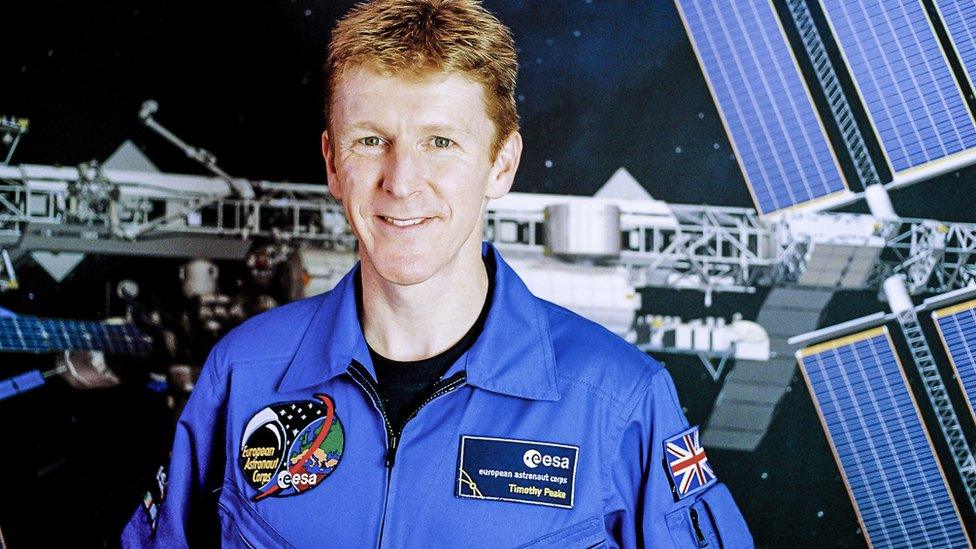
UK astronaut Tim Peake took two Raspberry Pis to the International Space Station
"We thought our lifetime volumes might amount to 10,000 units - if we were lucky," wrote founder Eben Upton in a blog., external
"There was no expectation that adults would use Raspberry Pi, no expectation of commercial success and certainly no expectation that four years later we would be manufacturing tens of thousands of units a day in the UK and exporting Raspberry Pi all over the world."
The latest sales figures were "fantastic", said tech industry analyst Chris Green - who owns four of the computers himself - at business consultancy Lewis.
"It's more than just a geeky coding tool - it's increasingly proving itself as a useful computer," he told the BBC.
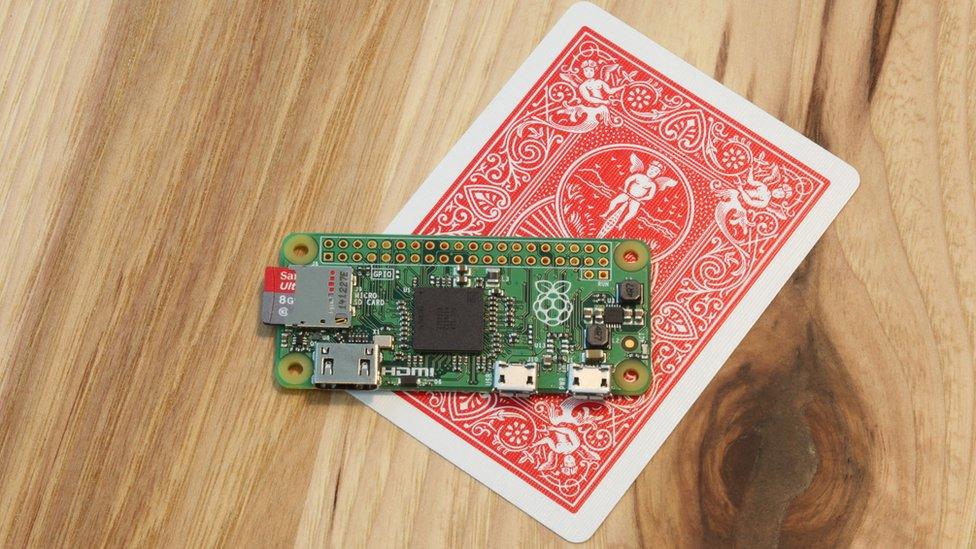
The Raspberry Pi Zero is a miniature version of the Pi - less powerful but even cheaper
The Raspberry Pi Zero, a version of the computer that costs £4, was ideal for use in developing countries, he added.
"They can run off batteries so where there isn't an abundance of electricity you still have a computer that can be used for teaching."
'Hard to use'
Although the Raspberry Pi has been used in many schools, it was more complicated for children to get to grips with than the BBC Micro Bit, argued Bethany Koby, co-founder of education-focused start-up Technology Will Save Us, which helped design the BBC's device.
"[The Raspberry Pis are] incredibly powerful but they're hard to use," she told the BBC. "That being said, the resources are amazing."
One million BBC Micro Bit computers were delivered free to every Year Seven student in England and Wales earlier this year.
- Published25 March 2016
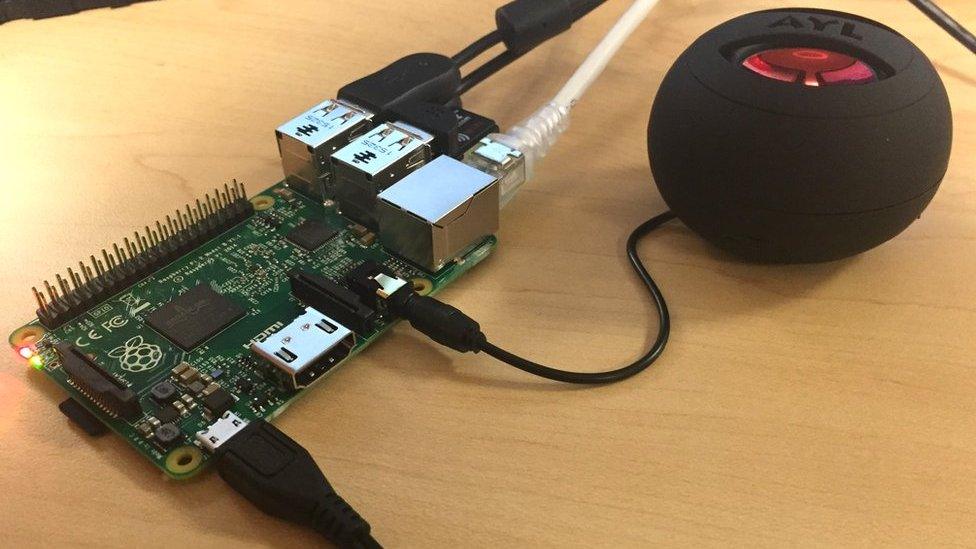
- Published22 March 2016
- Published29 February 2016
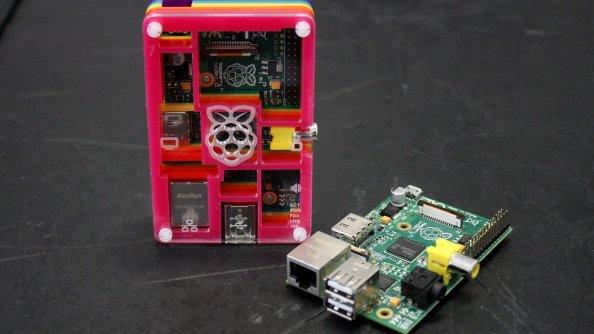
- Published2 February 2015
